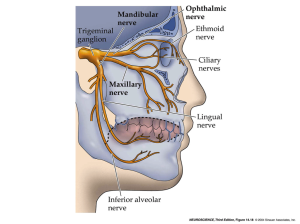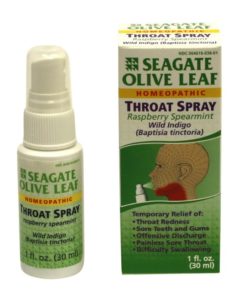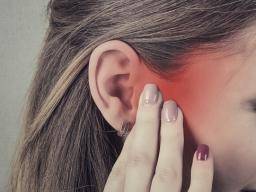After tonsillectomy surgery, patients have plenty of unpleasant side effects to deal with. Swelling of the uvula, tongue, and throat are usually the first hurdle adults have to deal with post tonsillectomy. Swallowing and breathing can be difficult. This isn’t too surprising, especially considering all that the throat has been through. Icing and gargling with ice water can help reduce this swelling, as can a steroidal treatment. The next problem after tonsillectomy, usually a day or so post-op, is pain in the throat area. Again, no big surprise. Icing is also a good way to treat, as are narcotic pain killers and/or over the counter pain medications. Topical analgesics like throat sprays can also offer some relief.
What surprises many is a phenomena occurring several days into their tonsillectomy recovery- ear pain.
Post Tonsillectomy Ear Pain – Cause and Treatment
Cause
Literally thousands of patients sharing their experiences on this website have commented that their ears hurt after tonsillectomy. Ear pain after tonsillectomy is probably the second or third most common side effect that patients experience- second only to pain and swelling. But why does this happen? There was no scalpel or hot knife near the ears, so why should they feel like they’re being stabbed? The cause of ear pain post tonsillectomy starts at the throat and radiates to the ears. This is called a referred pain. Take a look at the attached diagram and note the lingual nerve. It’s directly connected to the ears and throat.

Treatments and Home Remedies
This referred pain can be quite severe. Often prescribed pain medications do not seem to relieve the ear pain that many experience after tonsillectomy. In addition to the pain medicines patients are taking, there are two home remedies that usually can provide some relief. The first of which is chewing gum. In light of the unpleasant side effect of have sugary residue in and around the throat, most tonsillectomy patients prefer a sugar -free gum. A mint flavor can also feel cooling. Exactly why chewing gum relieves ear pain is hard to say. Certainly activating the muscles around the ears and jaw may help, but more likely, like yawning, gum chewing releases pressure from the ear area.
 The second remedy for ear pain after tonsillectomy is applying a heating pad or warm compress to the affected area. Again, the reason for its effectiveness is not entirely clear but most patients describe a relaxing comfort from applying a wet, warm towel or electric heating pad to the affected area. To reduce inflammation, alternate between warm and cold compresses.
The second remedy for ear pain after tonsillectomy is applying a heating pad or warm compress to the affected area. Again, the reason for its effectiveness is not entirely clear but most patients describe a relaxing comfort from applying a wet, warm towel or electric heating pad to the affected area. To reduce inflammation, alternate between warm and cold compresses.
-Greg My short bio
Have you found a trick for taking the edge off of ear pain, especially after tonsillectomy and adenoidectomy? Please share it in the comments section below. Thank you!

Hi, I am on day 9 after a tonsillectomy and have found something that helps -a lot- with my ear pain is to rub pure Lavender essential oil around my ear concentrating more on the bottom half, then rub the oil from the ear down the line of the cheekbone across the face towards the corner of the mouth and again from the ear down the line of the jaw to the chin. No harm in a few drops from the ear down the neck across the throat too.
I find it gets the pain under control very quickly while the pain meds kick in, I am in Australia and am alternating taking Panadeine Forte and Nurofen Plus.
Hope this works for others too, good luck with your recovery.
I’m on Day 10 of a tonsillectomy and sinus surgery (they also used a retractor on me, so my jaw hurts, too). I have taken to wetting and freezing q-tips and put them down my ears. It is a very very intense momentary relief, and it also lifts your spirits (my 3 and 6 year olds thought mommy was a little crazy), but after all that pain, a little levity couldn’t hurt. You can also run the q-tips around the back of your ears and press down against your jaw bone. I also keep a hand full of “teething rings” from when my kids were small in the freezer. They are great for emergencies, and freeze up really quickly. You can keep a few of these on rotation, especially for the back of your ears and jaw. Hope this helps.
Wow! These are great little tips Nancy. Thank you! Hope you’re feeling normal again soon.
I am 40 years old. I had my tonsillectomy on 1/31/14. I have had a rough time with the healing going into my throat. It feels like there are stitches in my throat…if I try to eat…I feel like food gets stuck in that area and then the ear pain begins. Does anyone have any helpful tips about how to help this heal quicker? Has anyone else had th is problem?
this website seems to be the best that ive looked at. i am 14 years old and am on day 4, my ear pain has been the wrost! i find it hurts more than my throat, it hurts the most in the morning and evening. i really hope the gum chewing and heat helps! i have been taking tylenol extra strength and advil every 4 hours and it seems to be helping but not as much as i would like it too, but thank you for this info it was very helpful!
I’m on day 7 after my tonsillectomy and my ear pain started to hit on day 4. It is insanely painful. I couldn’t handle the percocet (throwing up for the 12 hours following surgery disabused me of any thoughts of taking that) so I’m taking motrin and tylenol alternatingly, every 4 hours or so. I’ve been a bit more fortunate than a lot of people in these forums because I’ve been able to eat decent meals for the past couple of days. Yesterday I made salmon and zucchini and it was delicious!! Someone wrote to eat ice cream – don’t do it! Do sorbet instead. Such sweet relief 🙂
For my ear ache I’ve been taking my pain meds, obviously, but also a decongestant (with the logic that the pain was coming from fluid buildup). It helps a LOT. I have taken the off-the-shelf decongestants that you can take every 4 hours, but honestly, what helps the most is the behind the counter stuff with pseudoephedrin. Just thought I’d share!
I use ice on the outside of my neck over where it is most painful. Also, DO NOT IRRIGATE THE HOLES IN YOUR THROAT WHERE THE TONSILS WERE. This will increase the ear pain. If food gets stuck, just drink water normally. This will dislodge some of the material and some of it will work out on its own. Sherbert and anything cold will help. Ricola cough drops have helped me and I am 10 days post op.